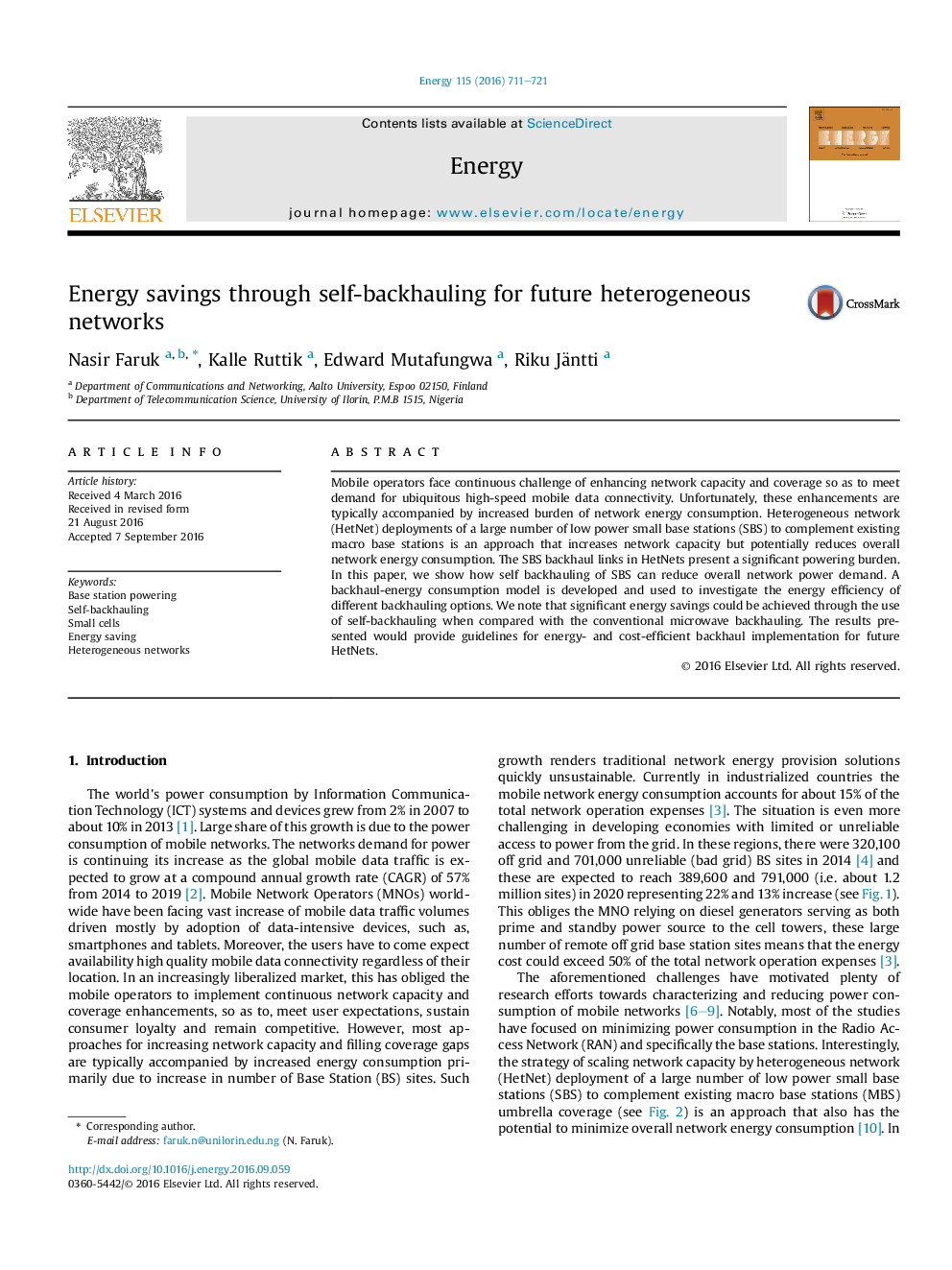| Article ID | Journal | Published Year | Pages | File Type |
|---|---|---|---|---|
| 5476709 | Energy | 2016 | 11 Pages |
Abstract
Mobile operators face continuous challenge of enhancing network capacity and coverage so as to meet demand for ubiquitous high-speed mobile data connectivity. Unfortunately, these enhancements are typically accompanied by increased burden of network energy consumption. Heterogeneous network (HetNet) deployments of a large number of low power small base stations (SBS) to complement existing macro base stations is an approach that increases network capacity but potentially reduces overall network energy consumption. The SBS backhaul links in HetNets present a significant powering burden. In this paper, we show how self backhauling of SBS can reduce overall network power demand. A backhaul-energy consumption model is developed and used to investigate the energy efficiency of different backhauling options. We note that significant energy savings could be achieved through the use of self-backhauling when compared with the conventional microwave backhauling. The results presented would provide guidelines for energy- and cost-efficient backhaul implementation for future HetNets.
Related Topics
Physical Sciences and Engineering
Energy
Energy (General)
Authors
Nasir Faruk, Kalle Ruttik, Edward Mutafungwa, Riku Jäntti,
